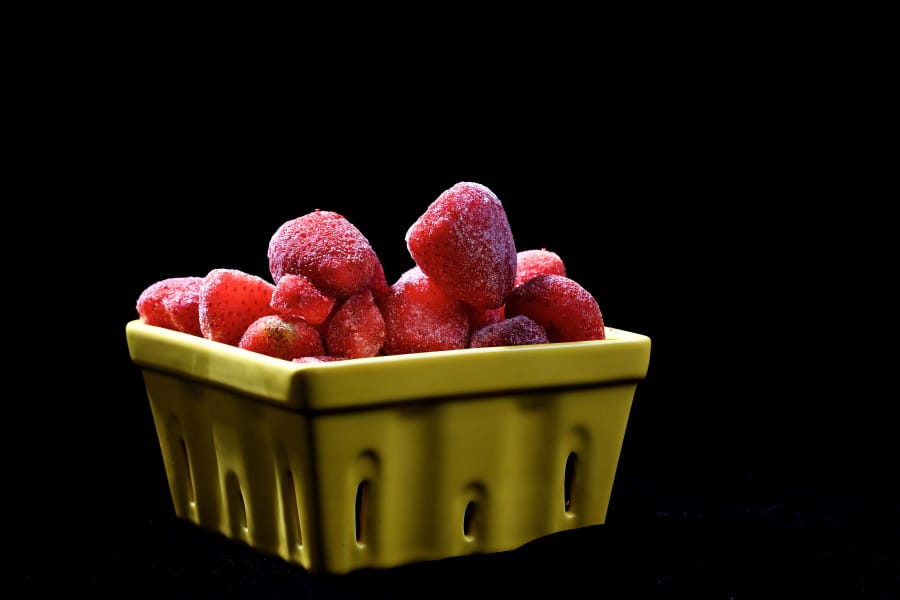When North Carolina State University microbiologist Benjamin Chapman makes a smoothie, he like many of us uses frozen berries. But first, Chapman microwaves his frozen berries to boiling and then refreezes them again before tossing them into the blender.
Why the extra steps? Chapman wants to be sure that there are no pathogens in the frozen berries that could cause a foodborne illness for him or his family.
“What I am doing may be overkill, but it makes me feel good,” says Chapman, who has been making smoothies this way for the past eight to 10 years, since his children were infants and toddlers. “I don’t have any thoughts that the berries are super high-risk to making us sick. But to me, it is something that is quick and easy to do. It’s my own risk management.”
Nor is he alone in taking extra precautions with frozen berries. In May, the Food and Drug Administration announced that it began sampling frozen berries last fall to look for hepatitis A and norovirus, two of the most common foodborne illnesses. The federal agency said that it plans to test 2,000 samples over the next 18 months from both domestic and imported sources, including food processors, distribution centers, warehouses and retailers, such as grocery stores.
As a result of this effort, there have already been two recent recalls of frozen berries announced by the FDA. They involved frozen blackberries and blended berries that were found to contain parts of the hepatitis A virus. These products were made by Townsend Farms and sold by Kroger and Costco. No outbreaks of hepatitis A have been linked to the frozen berries.
Nor does the recall mean that any of the berries contained whole, live hepatitis A virus. “These are tests for the DNA of these organisms,” said microbiologist Donald Schaffner, director of the Center for Advanced Food Technology at Rutgers University. “It is not an indication that these berries contain the living or intact virus that can make people sick. That said, a recall is the right thing to do.”
Schaffner predicts that there will be more recalls of frozen berries but doesn’t expect that there will be a lot of foodborne outbreaks linked to berries “based on what we have seen historically in the United States.”
He would hate for consumers to think that frozen berries are not safe. “We want people to eat more fruit and vegetables,” said Schaffner, who co-hosts the Food Safety Talk podcast with Chapman and is an editor of the journal of Applied and Environmental Microbiology. “We want people to eat berries. I am not going to change my berry-eating consumption because of this because we know that these are safe, healthy foods.”
When it comes to foodborne illnesses, most people think of the culprits being undercooked hamburgers or fresh produce, such as spinach, romaine and cantaloupe. All have been fingered as the sources of recent foodborne outbreaks, including salmonella and E. coli 0157:H7.
Less known, lower in number, but still important, are a handful of foodborne illness outbreaks that have also been tied to frozen berries. According to the FDA, frozen berries caused three hepatitis A outbreaks and one norovirus outbreak in the United States from 1997 to 2016. Nearly 550 people were sickened and 53 had to be hospitalized. There were no reported deaths.
What worries microbiologists is that in Europe, frozen berries have caused a much greater foodborne illness problem. Between 2013 and 2014 alone, mixed frozen berries caused a hepatitis A outbreak that sickened more than 1,500 people.
“As a scientific community, I don’t think that we understand the connection between viruses and frozen berries,” Schaffner said. “Why is there that hotspot connection? The FDA has now embarked on this sampling trial to try to give us more information to try to figure out what the risk actually is.”
It might seem that freezing should kill these sometimes deadly diseases. But cold temperatures are actually how microbiologists preserve hepatitis, norovirus and other foodborne microorganisms to study in the lab. “Freezing doesn’t kill them, and they die very, very slowly in the freezer,” Schaffner said. He added: “So basically, there are lots of things that can make you sick in the freezer.”
This is why Chapman cooks frozen produce for his smoothies or any other dish, even if the recipe calls for thawing in the fridge.



